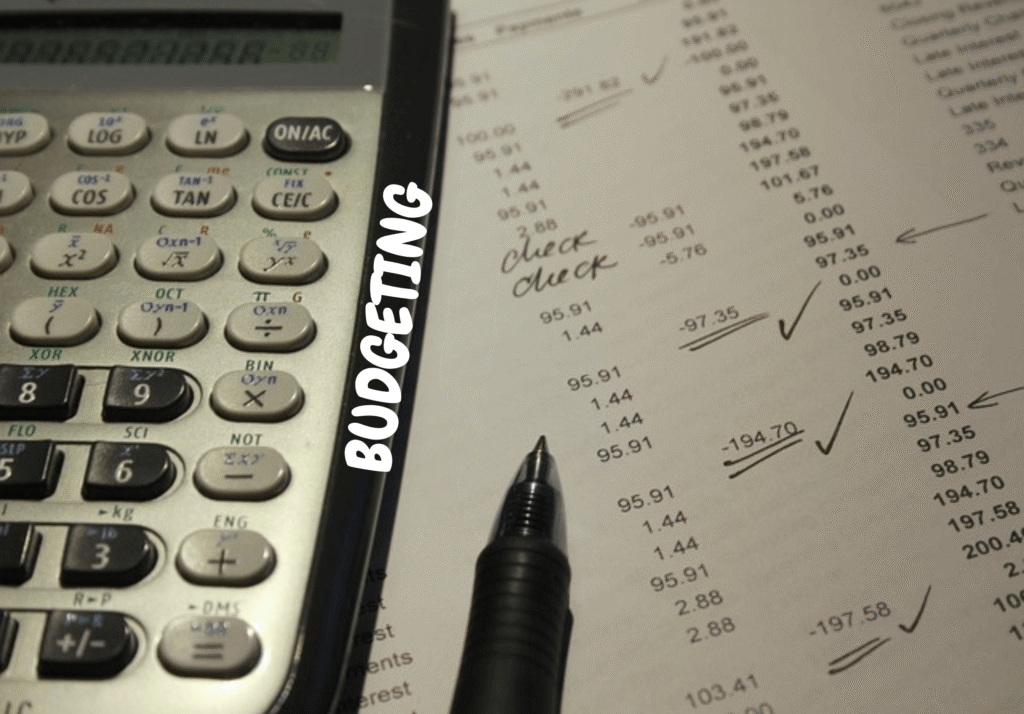By the end of this article, you’ll discover the real meaning of zero based budgeting. Have you wondered where your money goes at the end of each month? You work hard, earn your paycheck, but somehow your bank account looks empty before the next payday arrives. This is where the meaning of zero based budgeting becomes important.
The meaning of zero based budgeting is giving every single dollar a specific job to do. Imagine you have a pizza with eight slices, and you need to decide who gets each slice before anyone starts eating. That’s exactly what zero based budgeting does with your money.
Studies show that 60% of Americans are unable to cover a $1,000 emergency expense from their savings. Also, the average American household carries about $6,000 in credit card debt. These statistics show that most people lack a solid plan for their finances. It is why the concept of zero based budgeting makes financial sense.
Instead of feeling stressed about money, you’ll feel in control. Instead of wondering where your money went, you’ll tell your money exactly where to go. This approach isn’t about living like a miser. Rather, it’s about making intentional choices with every dollar you earn, ensuring that your money works.
What is the Meaning of Zero Based Budgeting?
Zero based budgeting is like getting your allowance and immediately deciding where every dollar goes. Before you spend anything, you’ve already made a plan for every single dollar.
Also, the concept of zero based budgeting suggests that your income minus your expenses should equal zero. Now, this doesn’t mean you spend everything until you have nothing left. Instead, it means you assign every dollar a purpose before the month begins.
For instance, some dollars get assigned to rent, groceries, savings, and some to fun activities. By the time you’re done planning, you’ve given all your dollars jobs to do, which brings your available money down to zero on paper.
Have you seen a kid organizing toys in different boxes? Imagine that he had 20 toy cars, and decided to put 5 cars in the red box, 7 cars in the blue box, and 8 cars in the yellow box. When he’s finished, he will have zero cars left. Why? Because every single car has been placed somewhere.
Why Every Dollar Actually Matters
Why does it matter if you plan what to do with every single dollar? If you don’t give your dollars specific jobs, they tend to disappear into things you don’t even remember buying. Have you ever checked your bank account and asked where all your money goes? That happens because those dollars didn’t have clear tasks.
If you understand the meaning of Zero based budgeting, it helps you see that small amounts actually add up to big numbers. For example, if you spend five dollars every day on coffee without planning for it, that’s $150 every month or $1,800 every year.
Do you know that every dollar represents your hard work and time? Think about how many hours you work to earn 100 dollars. When you let those dollars slip away without purpose, you’re wasting the time you spent earning them. Thus, the meaning of zero based budgeting is also about respecting your time and effort.
Read Also: How to Build Your Emergency Fund Without Sacrificing Your Lifestyle
How to Create a Zero Based Budget in 3 Steps
A zero based budget assigns every dollar of your income a specific purpose. It ensures that your income minus expenses equals zero at the end of each month. Creating this budgeting system is easier. Just follow these three simple steps:
- Know exactly how much you earn
- List out all your expense categories
- Assign dollar amounts to each category
To begin with, you need to know exactly how much money comes into your household each month. This includes your paycheck, any side hustle income, or other money sources. Write this number down at the top of your paper or budgeting app. This is your starting point.
Next, you’ll list out all your expenses, starting with the most important ones first. Have you thought about the essentials like food, shelter, basic utilities, and transportation? They come first because you need them to survive. After that, you’ll list other expenses.
Here’s where the real meaning of zero based budgeting comes into play. You’ll assign dollar amounts to each category until you reach zero. For instance, if you earn $3,000 per month, you might divide:
- $1,000 for rent,
- $400 for groceries,
- $200 for utilities,
- $300 for car expenses,
- $100 for insurance,
- $500 for debt payments,
- $300 for savings, and
- $200 for fun activities.
This instance shows that there is zero balance left from the $3,000 per month income of this household.
Read Also: How to Stick to Your Monthly Budget: 7 Proven Tips That Work
3 Mistakes People Make and How to Avoid Them
Many people stumble over some traps that can delay their financial progress. Here are three common mistakes and how to avoid them.
- Forgetting about irregular expenses
- Being rigid with categories
- Not budgeting for fun
Even when people understand the meaning of zero based budgeting, they sometimes make mistakes that hold them back. The first common mistake is forgetting about irregular expenses like car repairs, birthday gifts, or holiday spending. You need to plan for these predictable surprises.
Similarly, another mistake is being too rigid with categories. You’re not here to create a perfect plan and never adjust it. Life happens. Flexibility matters. If you allocated $300 for groceries but only spent $250, you can move that extra $50 to another category or add it to savings.
Remember to budget for fun. This is actually a serious mistake. When you feel too restricted, you’re more likely to give up. Therefore, ensure that your zero based budget includes funds for things you enjoy, such as movies, hobbies, or dining out.
Read Also: How to Budget with an Irregular Income: 10 Mistakes to Avoid
Real-Life Benefits You’ll Actually Experience
When you embrace the meaning of zero based budgeting, you’ll notice tangible changes in your financial life. First, you’ll experience less financial stress. You’ll have a clear plan and know exactly whether you can afford something before you buy it.
Also, you’ll start building savings almost immediately because you’ve assigned dollars to your savings category at the beginning of the month. Saving becomes non-negotiable rather than something you do after spending. However, with the meaning of zero based budgeting, saving happens first, not last.
Do you want to make faster progress on debt payoff? When you see where every dollar goes, you often find extra money that was being wasted. Those extra dollars can pay off credit cards, student loans, or other debts. You can pay off debt much faster than you ever thought possible.
Conclusion
The meaning of zero based budgeting is quite simple. It’s about giving every single dollar a specific task before you spend any of them. You’re making intentional decisions about your money rather than hoping everything works out. This approach changes your relationship with money to a peaceful one.
The meaning of Zero based budgeting is not restriction. It means you’re taking control and making choices about what matters to you. You’re deciding that your money should work toward your goals instead of disappearing on impulse spending.
Starting today is easier than you might think. Write down your monthly income at the top, and begin listing your expenses until you reach zero. As you practice this month after month, it becomes second nature. Zero based budgeting should be a habit that changes your entire financial future.
Read Also: 5 Top Budgeting Mistakes to Never Make Again
https://thrivelaunchpad.com
Obinna Oguji is the founder and lead author at ThrivelaunchPad.com, a personal finance blog dedicated to helping you with practical money management strategies and informed decision-making.
Beyond ThrivelaunchPad.com, he contributes his expertise to EntrepreneurBusinessBlog.com, where he shares strategies on starting, managing, and growing businesses using effective sales and marketing tools.
He is here to empower you with the knowledge and tools you need to make sound financial decisions and create the financial future you envision.
Email: obinna@thrivelaunchpad.com


